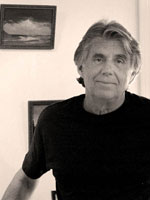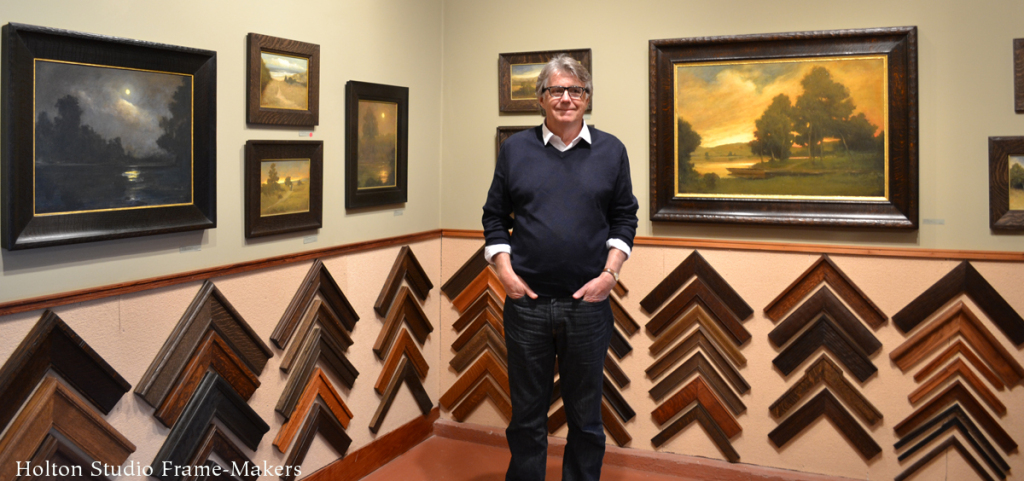 For over twenty years, Paul Roehl has been teaching art history, painting, printmaking, and drawing at Monterey Bay area colleges. He is currently an adjunct professor of art and art history at De Anza College in Cupertino, California.
For over twenty years, Paul Roehl has been teaching art history, painting, printmaking, and drawing at Monterey Bay area colleges. He is currently an adjunct professor of art and art history at De Anza College in Cupertino, California.
In his early years as an artist, Roehl was primarily a printmaker known for his method of layering intaglio prints with acrylic paint to achieve a distinctive surface quality. His subject matter was abstract and non-representational. Although public response to his work was positive and gratifying, he was frustrated by the constant requests to explain the meaning of his art. Roehl feels that much contemporary art seems adrift and directionless, more akin to social critique or political discourse preaching to a chorus of believers. As a result, he began to rethink his own artistic process. How might he elicit a response as pure as that evoked by such elemental human experiences as beauty, love or even death?
For inspiration, Roehl drew upon the influence of his own early training as well as his broad and deep knowledge of art history. His professor at San Jose State University, Maynard Stewart, taught according to the strict academic style of the École des Beaux-Arts, a Parisian art academy where students have been trained in the classical style for more than 350 years. Stewart’s own father had studied there with the great French academic painter Jean-Louis Gérôme. By 2005, Roehl made a stylistic about-face. He began to paint landscapes, a subject that would enable him to put his current aesthetic concerns into practice, taking particular inspiration from the mid-nineteenth century French Barbizon school, where artists first brought their easels out into the forests of Fontainebleau to paint directly from nature. The Barbizon painters (Rousseau, Corot, Millet) broke new ground by making landscape their primary subject, and would serve as a compelling model to early twentieth century California landscape painters such as Arthur Mathews, William Keith, George Inness and Gottardo Piazzoni — all artists whose work Roehl admires and emulates.
See Paul’s website, www.paulroehl.com.
Receive updates on Paul Roehl…
Paul Roehl discussing his work—

Paul Roehl at the Gallery before the opening of “A Continuous Harmony,” on February 7, 2015